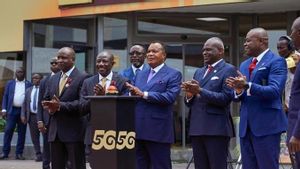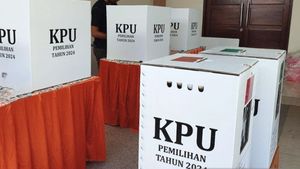JAKARTA - Five industry experts who appeared before the United States House Energy and Commerce Oversight Subcommittee have different views on how lawmakers should deal with crypto energy consumption.
In written testimony released before Thursday's trial, January 19, on "Cleaning Cryptocurrencies: The Energy Impact of Blockchains," former Currency Comptroller Brian Brooks argued that the energy consumption of Bitcoin (BTC) mining is "economically productive." This is because other assets including gold require roughly the same amount of energy to mine, with “a number of other environmental concerns.”
Additionally, Brooks says that the traditional global banking system consumes roughly 2.5 times the amount of power to generate the same amount of value as BTC at its current market cap.
John Belizaire, founder and CEO of Soluna Computing and another witness who was present at the trial, said that from an energy perspective, the miners and computers needed to power crypto are "not wasted" and could encourage the development of renewable energy sources.
The CEO said that, unlike other banking systems, Bitcoin mining includes the option to shut down the system when needed, which gives miners the ability to absorb excess energy from an area's power grid rather than overload it.
Cornell Tech professor Ari Juels, a frequent critic of crypto mining as it is today, supports the crypto space as a whole but supports efforts at “energy efficient alternatives” to general proof of work (PoW) for mining.
He added that the Ethereum blockchain transition to proof-of-stake (PoS) will likely consume “much less electricity” and have features including smart contracts and non-exchangeable tokens. It's not like Bitcoin.
“Bitcoin is not the same as blockchain,” Juels said, as quoted by Cointelegraph. “The extraordinary promise of blockchain technology does not require Bitcoin or its energy-intensive component called proof-of-work.”
Steve Wright, the recently retired former general manager of Chelan County in Washington, also hinted that mining companies should consider "mechanisms to ensure crypto production is pushed towards efficient returns as early as possible."
Wright noted that the high value of clean energy costs in an area appears to be pushing many crypto miners toward carbon-emitting fossil fuel energy sources for "at least in the near future."
US lawmakers seem to be paying great attention to crypto and blockchain when there is room for growth. Last December, the Senate Banking Committee held a hearing on stablecoins and how the US could participate in the race to adopt digital currencies.
Brooks also testified at a US Senate Committee hearing the same month about the role of digital assets in the future of finance.
“While digital tokens are a highly speculative and volatile asset class, they also represent the promise of a more open and widely shared internet,” said Gregory Zerzan, shareholder in business law firm Jordan Ramis.
"If policymakers take a cautious approach and encourage a pro-innovation environment, the rewards for consumers, investors, and all Americans are likely to be huge," he added.
The English, Chinese, Japanese, Arabic, and French versions are automatically generated by the AI. So there may still be inaccuracies in translating, please always see Indonesian as our main language. (system supported by DigitalSiber.id)













